Misunderstanding someone’s character allows people to misclassify them, whether with a positive or negative outlook. In African American history, the Black community has often been unaccepted in American society because of a past full of discrimination and hate. In present times, it is much easier to criticize and reject all minorities for their character because of the lack of acknowledgment of where they come from and their experiences.
For decades, Black people have been criticized and judged for their misconduct by the white population. Yet, they have been consistently taken advantage of by non-African Americans who use aspects of their culture, such as their fashion, music or hairstyles. Although non-Black individuals hyper-fixate on Black individuals’ behavior, Black individuals also possess the exact same behavioral claims against each other. For instance, over the years, African American actor and creator of the “Madea” films, Tyler Perry, has portrayed poverty, classism, stereotypes and abuse in a direct, discriminatory manner. Any action Black individuals make is known as “unacceptable” behavior. But what makes it unacceptable?
Deep-rooted misconceptions have objectified and dehumanized Black individuals on a societal level. Stereotypes give non-Black audiences a negative perception of Black people and have directly contributed to their ill-reputed portrayal, making Black individuals seen as less valued and intolerable within American society. Furthermore, more stereotypes will be formed by normalizing these stereotypes within American society based on the experiences and ideas presented. The power of the media and its influence on the audience generates visibility around ethical, social and political views, which shapes how non-Black individuals see Black people and their environment. However, being aware of how to avoid the misconceptions perpetuated by the media is vital to understanding the lives of the Black community so that all Black individuals can have the opportunity to grow and be freed from the negative views the American society puts on them.
_________________________________________________________________________________
Overcoming the stereotypes
Black Americans are often perceived as monolithic, and being associated with racial stereotypes isn’t atypical. These stereotypes — including criminality and the labeled perception of how Black individuals speak — influence how they are treated, especially in the legal system.
Growing up as a Black girl, many face hypersexualization. In our society, Black girls are viewed as less innocent than white girls and may allow boys and older men to exploit them to make full use of them. The physiques of these young Black girls are hypersexualized by men and further damage their body confidence, causing them to doubt if they’re loved for being themselves or for their bodies. Oftentimes, Black girls are not believed when addressing sexual assault and are blamed. Even during slavery in the United States, enslaved women and girls often became pregnant as proof that Black women had an insatiable sexual force. Instead of these pregnancies being signs of their sexual assault, people used this as proof that African-Americans have sexual inclinations, while white women and girls were “modest” and “pure.” Confronting these stereotypes would allow future generations of Black girls to be viewed differently in a positive way.
“People will date any type of white girl, but [for] Black girls, they look for [specific features setting a] certain standard for them to fit into, [which] makes them not only insecure but scared to go out alone because of the fear of being raped or harassed,” sophomore Brianna James said. “[Hypersexualization] will never change because people don’t care enough. It’s not as much of a big deal to everybody as it is to this one group.”
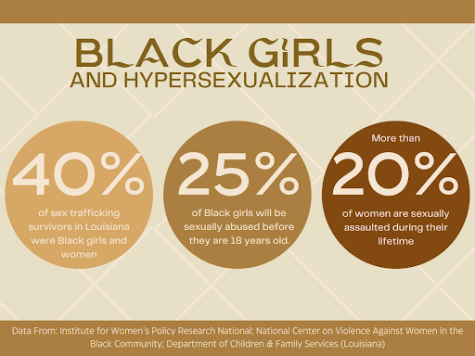
As these girls grow older, they face another stereotype. One of the most common judgments is the Angry Black Woman, which originated from Amos ‘n’ Andy, an American radio sitcom about Black characters, and depicted Black women as insolent and domineering. Today, much of society still categorize Black women as hostile, overly aggressive and ill-tempered. For example, some news headlines on Louisiana State University (LSU) basketball player Angel Reese called out for “aggressively” taunting Iowa basketball player Caitlin Clark after LSU won their first-ever national championship. Reese received names such as “classless” and “ghetto” for taunting Clark. However, Clark had done the same thing in previous games without receiving harsh criticism from media outlets which show that Black women will be judged more harshly than white women. But, when non-Black individuals react similarly to the same situations, they’re not judged as harshly for their behavior, when in reality, all reactions and mistakes are human, but in this case, only Black people are criticized for it.
Black men are also seen as a threat to society. When coming across a Black man, especially being an authority figure, he’s a criminal, thief or a bum. Black men and young boys who grew up in some of the wealthiest families often do not remain affluent, falling into the distinctive pattern of poverty many Black people are disproportionately subjected to. The gaps between Black and white boys who grew up in families with similar education and earnings still disfavor Black boys, leading to false judgments about what is considered a “good” Black man. Even from a “posh” background, Black men are hyper-stereotyped as scary, intimidating and violent. This effect is even worse for Black men and boys who cannot find a job easily or are ‘mistaken’ to be a criminal.
“There’s been times in my life where I have been profiled in different situations. At the time, I didn’t think about it [until] after the situation happened. I reflected [on it] and was upset due to the fact that the interaction was negative for no reason,” senior principal Jamaal Heavens said. “To be happy, you have to gently be yourself in all situations because if not, you’re not reflecting the true you, and that puts another burden on yourself outside of [the burdens] the world may put on you as well.”
As the stereotypes advance, movies and television often reflect and reinforce the beliefs and attitudes on races. In the entertainment industry, Black people are often the repeated target, especially in modern-day movies. In Tyler Perry’s movies, “I Can Do Bad All By Myself” and “Diary Of A Mad Black Woman,” Black households and couples are distinguished as separated and broken. These Black films earn millions of dollars and profits but are spreading untrue stereotypes rooted in historical prejudice to non-Black individuals.
Part of the reason stereotypes about Black people exist is that Black people aren’t getting the recognition they deserve. For example, in the phenomenal true story “Hidden Figures,” three African-American women at NASA whose calculations helped fuel some of America’s greatest achievements. This accomplishment only exemplifies how American society will value Black individuals once their works matter, showing beyond doubt that Black individuals aren’t being recognized and taken advantage of for the usage of society.
“Parkway is a very challenging school [district], especially with it being a predominantly white area; people pick and choose [who they want to involve in activities]. If I went to a city school — or even Parkway North — and give the talents that I’ve tried to give to Parkway [West], I would be [on the] top,” junior Tristen Banks said. “I could have the same things that a white person may have, and other people [would] look past me because of my color.”
Minorities are also overlooked by the predominant race of the population, which are white people. The importance of the Black community hasn’t been dignified by the white population; because of this, life and success are seen as racial competition.
“There’s a stereotype that [white people are] more successful than a Black person or [any] minority. [But there should be] no such thing as ‘Oh, because they’re white, they’re better than you’ or ‘They’re going to do this or that.’ [People] will go more towards other races versus us even though we’re just as good,” senior Nykira Johnson said. “You can tell that whites are treated differently than Blacks depending on the situation.”
The decisions Black people make as individuals are overridden by various racial stereotypes regardless of their attributes. Take a look at the discrimination Black people face from figures of authority. Oftentimes, police officers brutally beat Black individuals, sometimes for uncalled-for reasons, while other Black bystanders do what they can to make sure all Black individuals get the justice they deserve when it comes to police brutality.
Non-black individuals often fail to see that the media shouldn’t dictate how Black individuals behave. Not all Black people are poor or rich, criminals or lawful, unsuccessful or successful. Black people need to be given the opportunity to show what they have to give rather than have their character be characterized unfairly by someone else because of what they see on social media or news channels.
_________________________________________________________________________________
The effects of prejudice on mental health
Evaluating people based on their appearance or character can be harmful and is a gateway to serious mental health disorders and distress. A stigmatized topic, mental health is an important discussion for the Black community. It is very beneficial in providing the help individuals may need when they have feelings related to fears of unacceptance. Junior Nylah Thompson has had experiences of feeling left behind after returning from learning at home after Covid-19.
“My teachers discriminate[d] the fact that I was African American and felt like I didn’t have the [same] determination as other students in my class, who were white, to get things done and to be successful in school,” Thompson said.
When Thompson asked for help, her teacher often took it as a joke.
“My grades from my sophomore year started to reflect that. That affected my mental health because now, I’m figuring out how I can raise my GPA,” Thompson said.
Racist stereotypes have also played a big part in shaping negative attitudes toward African Americans. Worsening mental health among Black people is one of the biggest effects of discrimination and negative commentary the African American community experiences. Common mental health issues, such as anxiety, take a toll on Black people and stem from generational racial trauma, such as racism and exclusion. These issues feed into the fears of being accepted in society by making many Black kids and adults feel unwanted.
The problems Black people have faced for decades have played a major part in how they are portrayed in recent times. Due to early slavery, segregation and continuing racism, the outlook on African Americans has always made Black individuals be viewed negatively. This has become one of the major reasons Black people tend to fear how others may perceive them, and added to the misconceptions other individuals may have about a Black person.
Mental health deepens the meaning behind misconceptions African American individuals face. Stereotypes — as well as portraying African American characters in a negative way — can cause mental health disorders to affect Black people more seriously and become more anxious about issues that can easily be solved by viewing people from an equal perspective. When it comes to the stigma and the fears Black people face, it can be mitigated by understanding their background and empathizing with them.
_________________________________________________________________________________
Magnifying success and influence over the years
African Americans have been expanding in success for years. Seeing others succeed has given many minorities hope and confidence that they can follow in their footsteps. Oftentimes, the Black community is seen as having a small chance of becoming successful due to several circumstances: possibly missing a parental figure, difficult living conditions, a deficient background, households, a fraction of the wealth of white families, lower income and continuous reasons as to what could affect the success rate. Although this can be true in some instances, judging those you aren’t very familiar with can hurt them and add to the stereotypes. Sophomore Mya Jenkins has experienced misjudgment due to her skin color when in public at late hours.
“[I get anxious] when I’m in the store grocery shopping with my grandma. [If] the clerk [sees that] I have on my hood, they [could] assume I’m stealing something. If we’re grocery shopping late at night, they could assume [that since] there is nobody else shopping, [us shoppers] could be doing something suspicious,” Jenkins said.
Within every race, ethnicity and nationality, there will always be those who are successful and less fortunate. In some cases, unsuccess is caused by coming from a hard background. With a disproportionately lower employment rate, Black individuals struggle to find a secure job. The labor market has historically been harder for African Americans than whites, and it is found that Black people are found to take longer to find a new job.
In recent years, African Americans have received a higher unemployment rate than whites. More recently, due to the pandemic, statistics have shown that there has been an even bigger unemployment rate as many have lost their jobs. Because of the increasing unemployment rate, it is seen historically as though Black people are employed in fields less frequently than whites. This affects the image portrayed of minorities as outsiders view them in negative mindsets. These issues are harmful as background reasoning or discrimination can affect the employment process.
Despite the disproportionate unemployment in the working sectors, African American individuals have succeeded in the entertainment field. Black culture is a major influence on America’s culture. There are many people of color (POC) celebrities and influential individuals that minorities look up to. However, in the early 2000s, there was a lack of representation in shows and movies, such as having a lack of minority actors. If minorities were portrayed, most of the time, they would only be cast as side characters rather than main characters. Minorities who grew up consistently viewing mainstream media during this time experienced a lack of people to look up to that share similar features.
“You will still see more white people than Black people being advertised no matter what it is unless it’s a Black-owned business or a little [biracial] kid, but 100% Black [advertisements] are very rare,” Johnson said. “A change needs to happen because [minorities] are highly affected. They might think [that] just because of what they see, they can’t do. For instance, my little cousin watches TV and says she wants to be a news reporter but only sees white people, [she gets the feeling that] because [she’s] Black, [she’s] not going to be able to [recognize] that’s a job for [her], but it is. It’s just how [lack of representation] is shown to the world.”
This lack of diversity has also led to many feeling they don’t belong or cannot be accepted. This causes a negative mindset as they do not have role models that could encourage younger people in the community to strive for success and achieve something. In most recent years, rates of leading minority actors have risen from 10.5% in 2011 and were recently charted in 2021 at just below 39 percent.
More recently, diversity has become more valued in the media in the U.S. This representation has paved an extensive path for Black individuals to pursue jobs that show systematic obstacles. Having more portrayal in the media is beneficial in allowing people to see the similarities and differences between different races portrayed.
Increasing representation over the years has allowed people to become aware of the multitude of diversity that can be portrayed in the media and has opened up the gateway to allow all people to have a better understanding of African American culture, which allows viewers to appreciate the success of Black individuals as individuals, and not as the collective.
_________________________________________________________________________________
Acknowledging our Character
Many African American students are faced with rejection from peers due to the color of their skin. This ongoing problem can be resolved by learning to view everyone equally, regardless of race.
According to Harvard Business Review, avoiding the reliance on negative preconceptions when judging people results in forming meaningful and diverse relationships with people, which can help people appreciate their differences. This leads to diversifying one’s knowledge and understanding of people of different backgrounds.
When recognizing African Americans’ circumstances, we must attempt to understand people from different perspectives. With the prevalence of negative profiling, discrimination and stigma against people of color, it’s essential that we be informed by putting ourselves into someone else’s shoes and being educated on Black people’s experiences. By expanding our knowledge of our cultural differences, we can better comprehend where others are coming from. Understanding Black people from their point of view can be beneficial, as they are often misunderstood.
As students, we must strive to become more informed and avoid believing negative cliches as it negatively impacts how Black individuals are perceived. Although African Americans continue to face the cruel negativity and discrimination for their identity — which in most cases lead to Black individuals experiencing mental health problems — understanding that Black people are not what the stereotypes portray them to be can help improve falsified stereotypes regarding our race and help us to take a step forward in society.

![Oftentimes, African American students face misjudgment from their peers based on age-old stereotypes surrounding their race. Because of this recurring issue, many Black students have shared a common experience of stereotypes, such as assumptions of their character based on their skin color. “I'm Black [and] I live in the county. [People] automatically assume, ‘Oh, she doesn't live in the city; she's whitewashed with some color.’ I [also] have hearing aids, and [people] assume because I'm a part of the Hard of Hearing group, [I’m] not aggressive or hostile. [Instead, I’m] approachable, the token character,” sophomore Mya Jenkins said.](https://pwestpathfinder.com/wp-content/uploads/2023/05/White-Name-Youtube-Channel-Art-2-900x506.png)


![Junior Fiona Dye lifts weights in Strength and Conditioning. Now that the Trump administration has instituted policies such as AI deregulation, tariffs and university funding freezes, women may have to work twice as hard to get half as far. "[Trump] wants America to be more divided; he wants to inspire hatred in people,” feminist club member and junior Clara Lazarini said.](https://pwestpathfinder.com/wp-content/uploads/2025/05/Flag.png)
![As the Trump administration cracks down on immigration, it scapegoats many immigrants for the United States’ plights, precipitating a possible genocide. Sophomore Annabella Whiteley moved from the United Kingdom when she was eight. “It’s pretty scary because I’m on a visa. When my visa expires next year, I’m not sure what’s going to happen, especially with [immigration] policies up in the air, so it is a concern for my family,” Whiteley said.](https://pwestpathfinder.com/wp-content/uploads/2025/05/DSC_0077-7copy.jpg)
![Shifting global trade, President Donald Trump’s tariffs are raising concerns about economic stability for the U.S. and other countries alike. “[The tariffs are] going to pose a distinct challenge to the U.S. economy and a challenge to the global economy on the whole because it's going to greatly upset who trades with who and where resources and products are going to come from,” social studies teacher Melvin Trotier said.](https://pwestpathfinder.com/wp-content/uploads/2025/05/MDB_3456-1200x800.jpg)



![Some of the most deadly instances of gun violence have occurred in schools, communities and other ‘safe spaces’ for students. These uncontrolled settings give way to the need for gun regulation, including background and mental health checks. “Gun control comes about with more laws, but there are a lot of guns out there that people could obtain illegally. What is a solution that would get the illegal guns off the street? We have yet to find [one],” social studies teacher Nancy Sachtlaben said.](https://pwestpathfinder.com/wp-content/uploads/2025/01/DSC_5122-1200x800.jpg)
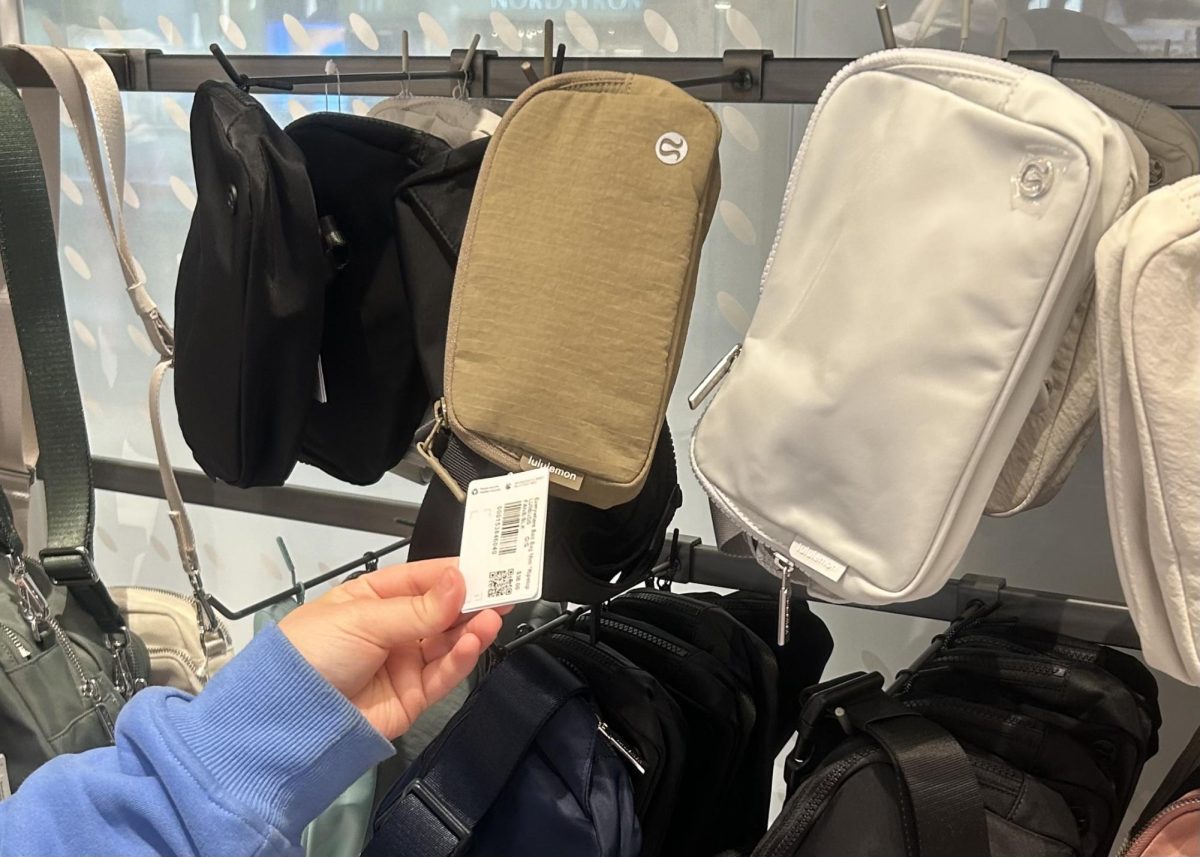
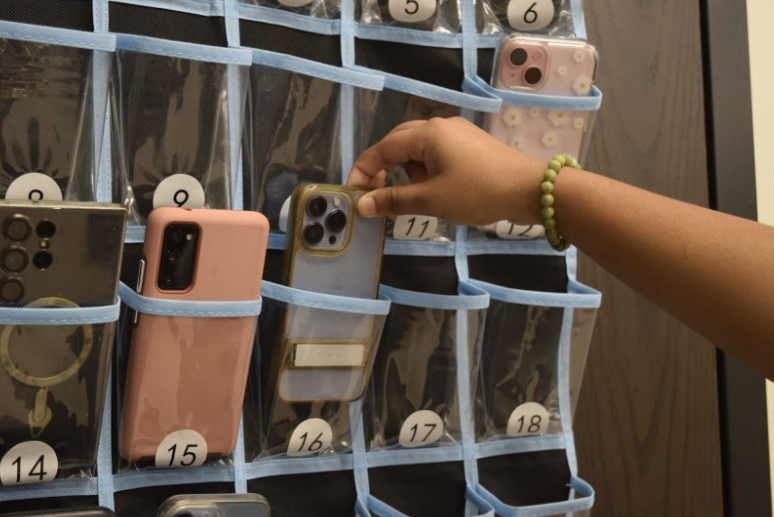
![Making up a large portion of the film industry, many popular movie remakes and sequels have been released recently. Similar to film remakes, theater teacher Amie Gosset often uses play adaptations of famous movies for theater productions. “It’s challenging because people have an idea of what the film is, whether it’s an iconic film or one they really liked. [Consumers] come in with a preconceived notion of how the [film] should be. Then, [they] are either surprised because they like the new version or disappointed because it’s not what they’re used to.”](https://pwestpathfinder.com/wp-content/uploads/2024/12/DSC_0042-1200x801.jpg)


![Pitching the ball on Apr. 14, senior Henry Wild and his team play against Belleville East. Wild was named scholar athlete of the year by St. Louis Post-Dispatch after maintaining a high cumulative GPA and staying involved with athletics for all of high school. “It’s an amazing honor. I feel very blessed to have the opportunity to represent my school [and] what [it] stands for,” Wild said.](https://pwestpathfinder.com/wp-content/uploads/2025/05/unnamed-6-1200x714.jpg)
![Red, white and blue, the American flag holds the values of our democracy. The fight that we once endured has returned, as student journalists and senior correspondents across the country are losing their voices due to government control. “[Are] the White House and [the] government limiting free speech [and] freedom of the press? Yes [they are],” chief communications officer of the Parkway School District and former journalist Elisa Tomich said.](https://pwestpathfinder.com/wp-content/uploads/2025/03/Untitled-design-14.jpg)
![Freezing in their position, the Addams Family cast hits the “rigor mortis” pose after cast member and senior Jack Mullen, in character as Gomez Addams, calls out the stiff death move. For the past four months, the combined company of cast members, orchestra pit, crew and directors all worked to create the familial chemistry of the show. “I’m excited for [the audience] to see the numbers, the music, the scenes, but I also just love all the technical aspects of it. The whole spectacle, the costumes, makeup and the people that put in the work backstage in order to make the show successful on stage. I’m excited for people to see and appreciate that,” Mullen said.](https://pwestpathfinder.com/wp-content/uploads/2025/03/DSC0116-1200x800.jpg)
![A board in the Parkway West counseling department displays pennants of selective universities. With a wide range of students interested in attending, it’s important that these schools have clear priorities when deciding who to admit. “[Washington University] had the major that I wanted, psychology, philosophy, neuroscience. That's a holistic study of the brain, and [WashU is] the only college in the world that offers that. That's the main reason I wanted to go; I got into that program,” senior Dima Layth said.](https://pwestpathfinder.com/wp-content/uploads/2025/02/Flag-1.png)
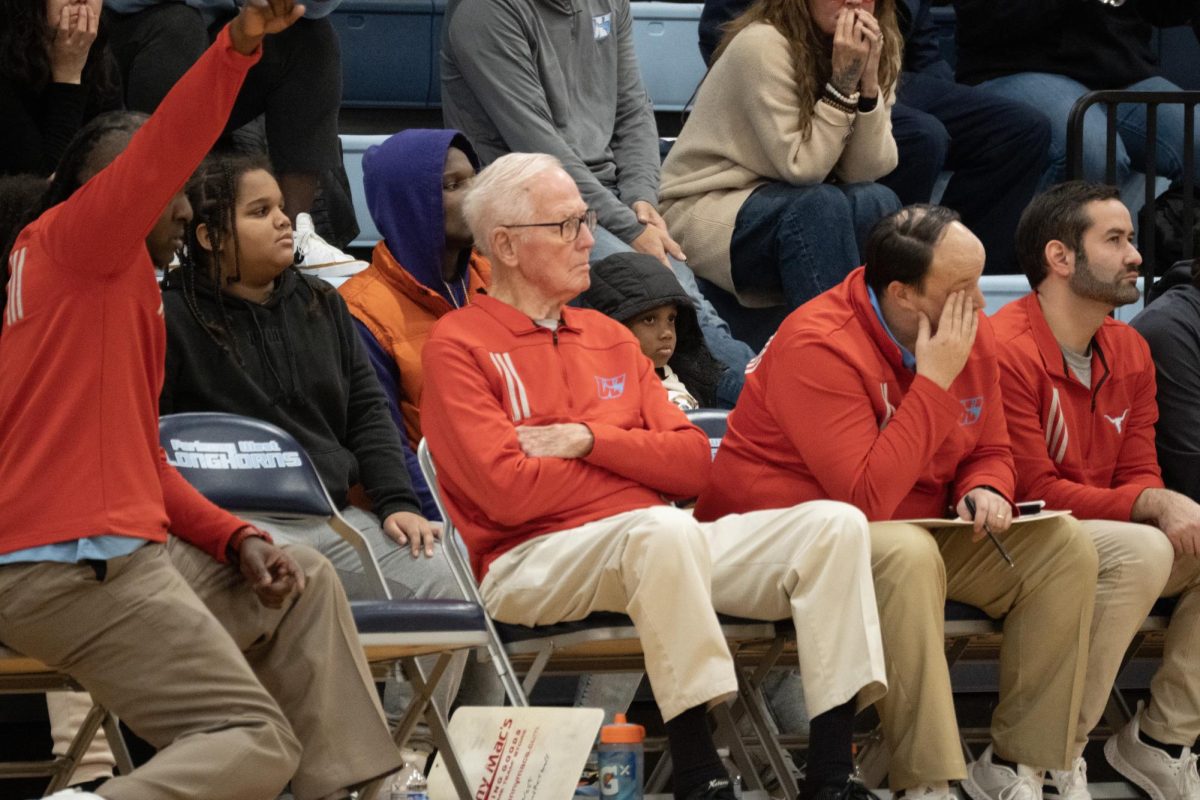
![Within the U.S., the busiest shopping period of the year is Cyber Week, the time from Thanksgiving through Black Friday and Cyber Monday. This year, shoppers spent $13.3 billion on Cyber Monday, which is a 7.3% year-over-year increase from 2023. “When I was younger, I would always be out with my mom getting Christmas gifts or just shopping in general. Now, as she has gotten older, I've noticed [that almost] every day, I'll open the front door and there's three packages that my mom has ordered. Part of that is she just doesn't always have the time to go to a store for 30 minutes to an hour, but the other part is when she gets bored, she has easy access to [shopping],” junior Grace Garetson said.](https://pwestpathfinder.com/wp-content/uploads/2024/12/DSC_0249.JPG-1200x801.jpg)
![Complex global supply chains supply the goods for everyday luxuries, such as the coffee at West High’s Blue Brew. Low tariffs enabled much of the prosperity of modern history. “Higher tariffs lead to higher costs. A tariff is a tax on an imported good, and someone has to pay for that tax, and typically that [will] end up impacting consumers,” economics teacher Rachel Money said.](https://pwestpathfinder.com/wp-content/uploads/2024/12/Flag-1.png)
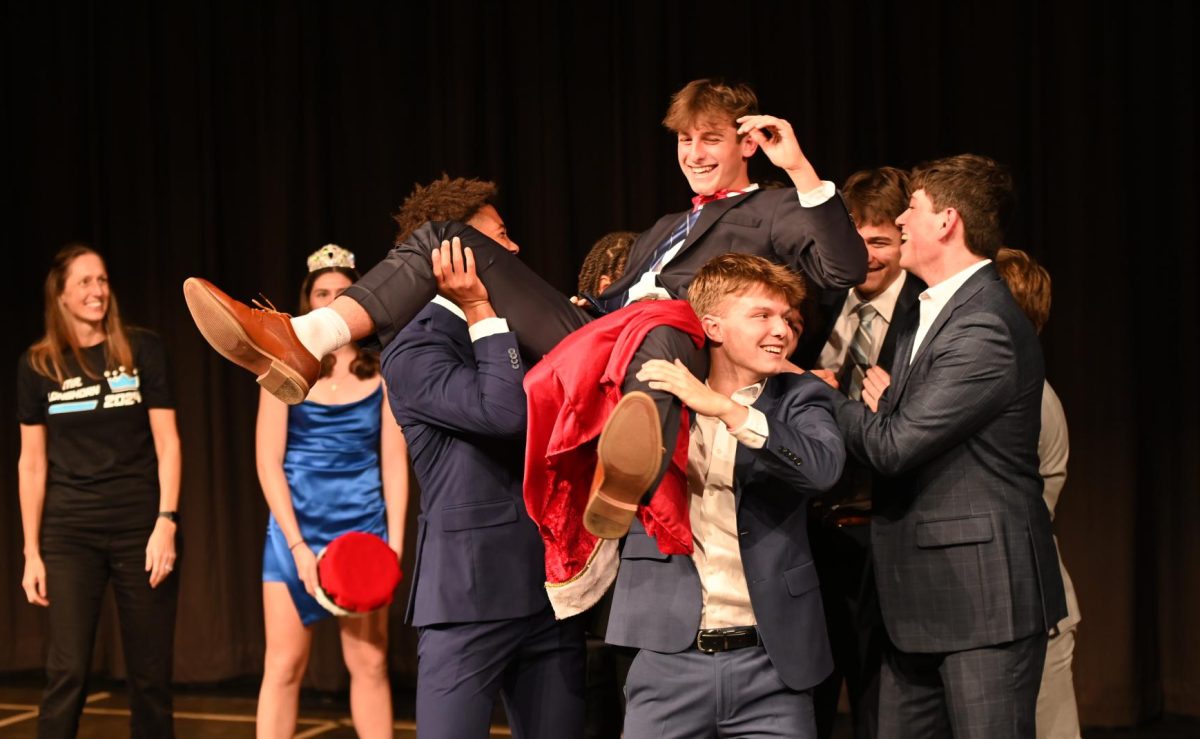
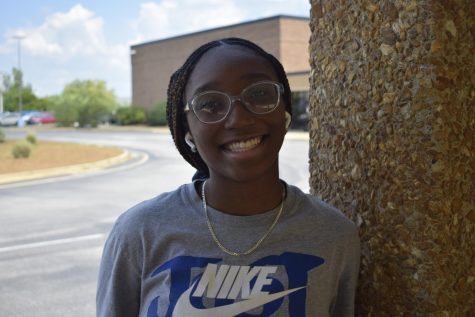
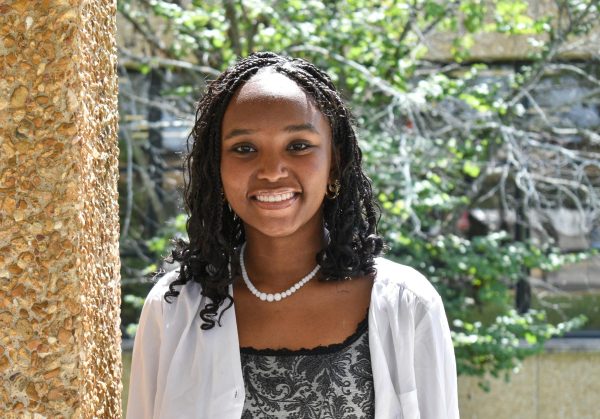
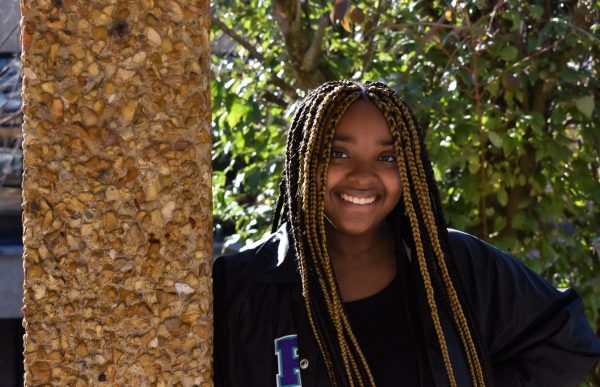
Debra Klevens • Sep 21, 2023 at 6:58 pm
Well done! I am so excited to see this post.
Will Gonsior • Aug 28, 2023 at 10:07 am
What Serena said! This was so well done and even as someone who hates rooting for LSU I can’t see how anyone could fail to appreciate what a gem Angel Reese is
Alisha Y • Aug 25, 2023 at 3:41 pm
W articleee
Serena Liu • Aug 25, 2023 at 11:47 am
Such an important story and so well-written!